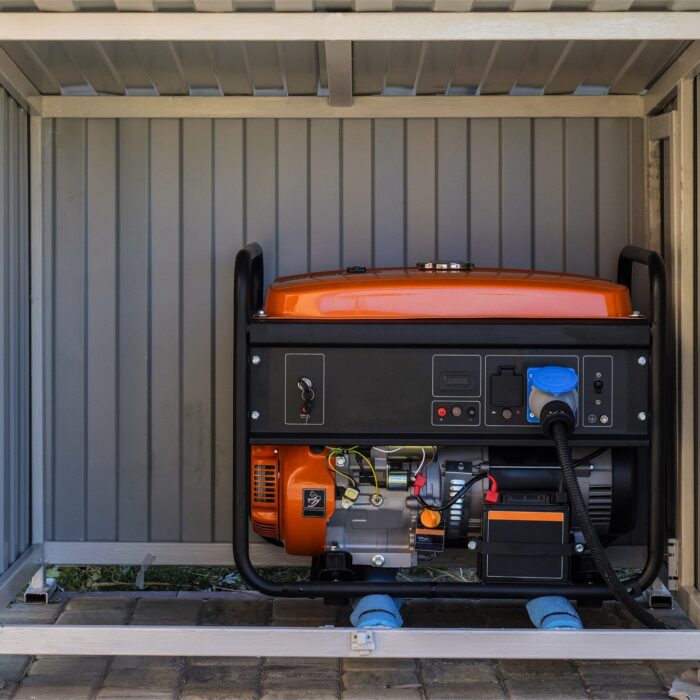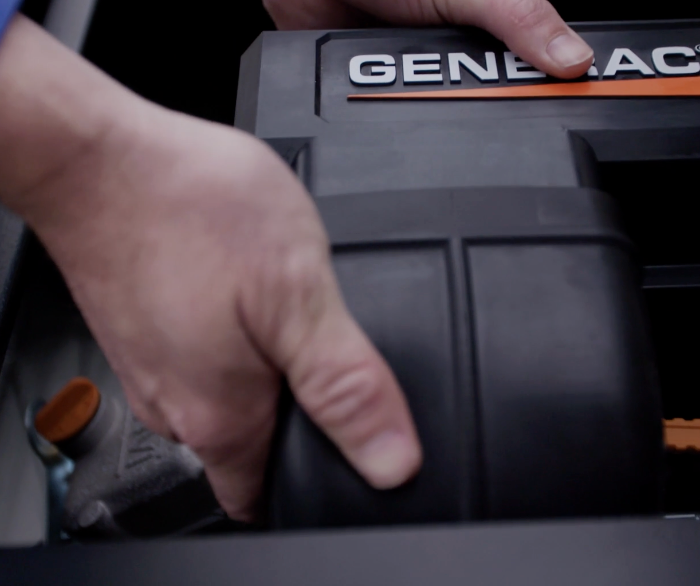Power outages can sabotage our lives and leave us without essentials. This can make it a huge challenge to maintain a comfortable and functional home.
Whole-house generators offer a solution to this problem by providing a reliable backup power source. Yet, choosing the right whole-house generator can be an overwhelming chore.
Do you need a buyer’s guide? If so, keep reading to explore the major factors when buying a whole-house generator.
Types of Generators to Choose From
When it comes to whole-house generators, there are primarily two types to choose from. This includes standby generators and portable generators.
Standby Generators
Standby generators are permanent installations that are directly connected to your home’s electrical system. You can count on them to activate when there’s a power outage, ensuring a seamless transition to backup power.
You can power your standby generators with either natural gas, diesel fuel, or propane. They offer a higher level of convenience and reliability, making them a popular choice for whole-house backup power.
Portable Generators
Portable generators seem more flexible on the surface. They’re smaller and more budget-friendly than standby generators. Still, they often need manual setup and fueling when a power outage occurs. This is a hassle that many homeowners don’t like to deal with. This is especially true because the manual setups are often complicated and far from user-friendly. That’s why it’s best to avoid them as your backup source of power.
Portable generators are ideal for smaller homes or as a backup power source for vital appliances and devices. Gasoline and propane are two of the most popular fueling methods.
If you’d rather not lug around a portable generator, trying to figure out how many appliances you can keep running and for how long, a standby generator is clearly the better solution.
Engine Types
The engine is the heart of your generator. Keeping that in mind, it plays a huge role in determining the generator’s performance and reliability. When choosing a whole-house generator, you’ll encounter two primary engine types. This includes air-cooled engines and liquid-cooled engines.
Air-Cooled Engines
Air-cooled engines are typically more compact and often found in smaller generators. They also need less maintenance compared to their liquid-cooled counterparts. Air-cooled generators are an excellent choice for homes with modest power needs. However, they may not be suitable for larger homes with higher energy demands.
Liquid-Cooled Engines
Liquid-cooled engines are commonly used in larger and more powerful generators. These engines are more efficient and can handle heavy loads for extended periods. They’re ideal for whole-house generators that need to power multiple appliances and systems. Liquid-cooled engines can better handle lengthy power outages.
Fuel Source
Choosing the right fuel source for your whole-house generator is essential. The most common fuel sources for whole-house generators are propane and natural gas. Each has its advantages and drawbacks.
Natural Gas
Natural gas is both clean and reliable. That’s why many people prefer it as the fuel source for generators. Plus, plenty of homes are already fitted with natural gas lines. This fact makes installation and refueling convenient. Still, the availability of natural gas depends on your specific location. It may not be an option in some areas.
Propane
Propane is a versatile fuel source that is widely available. You can also take advantage of the storage convenience. It can be stored on your property in tanks.
Propane generators offer excellent performance and reliability. They’re a great choice for areas without access to natural gas lines. They also work as a great backup in case your gas line goes out during an emergency.
The more backups you have, the more prepared and safer you’ll be.
Deciding On the Perfect Size
Do you still need to choose a size? Selecting the right size generator is crucial to ensure that it can power your entire home during an outage. The size of a generator is measured in kilowatts (kW), and your choice should be based on your specific power needs.
- Make a list of all the appliances and systems you want to power during an outage. This may include lights, heating or cooling systems, refrigerators, and more.
- Calculate the total wattage required by summing up the power consumption of these items. You can often find this information on your appliance labels or related manuals. If you still can’t find the wattage, refer to the brand manufacture’s website.
- Consider any additional load factors, such as the starting wattage of certain appliances.
It’s always a good idea to discuss specs with a professional. Doing this will ensure you pick the perfect size generator for your home’s unique requirements.
The Importance of a Transfer Switch
A transfer switch is a vital component of your whole-house generator system. It manages the seamless transition between your regular utility power and backup power from the generator. In the absence of a transfer switch, you’ll need to switch between power sources yourself. Doing it this way can be inconvenient and even dangerous.
The transfer switch detects when there’s a sudden power outage. That way, it can automatically redirect the electrical load to the generator. When utility power is restored, it switches back to the main power source. This ensures that your generator operates efficiently. It’ll also help guarantee that your home’s electrical system remains safe.
A Whole-House Generator Is a Wise Investment
With a whole-house generator, you won’t be tied down by tight power limitations and you and your family can be as comfortable as possible during an outage emergency.
You can rely on Generator Supercenter Heartland for all your generator needs. This includes installation, repair, and generator maintenance. We have a great range of convenient locations throughout Louisiana and beyond.
Do you have questions, or would you like a generator quote? Either way, don’t hesitate to reach out to Generator Supercenter today.





